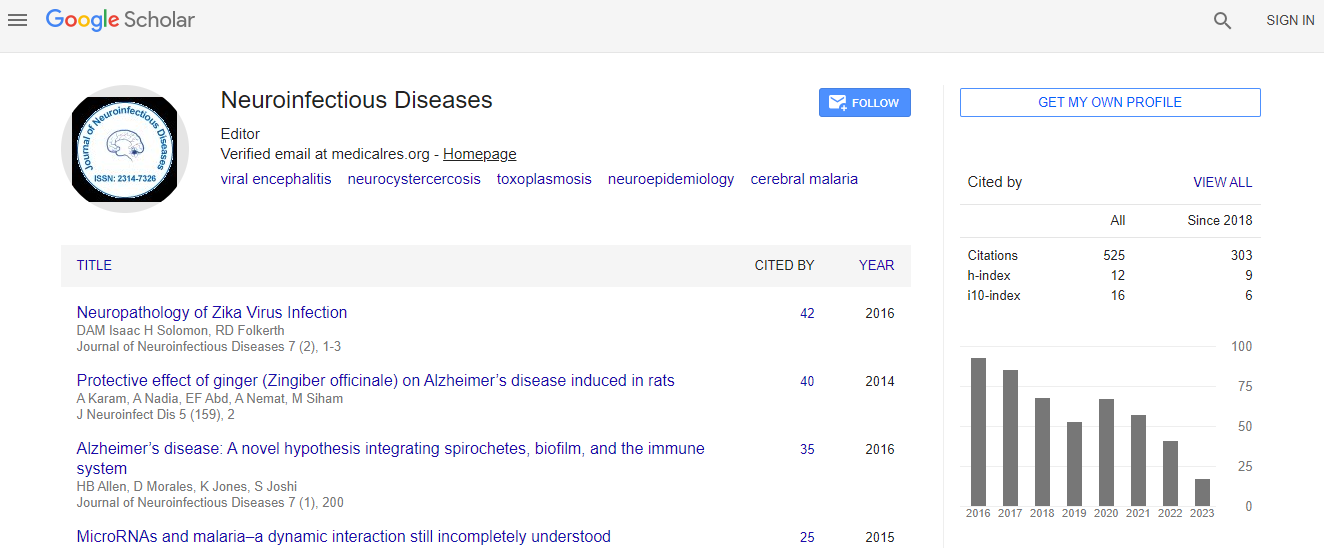Case Report
Case Report: Cerebral Toxoplasmosis Infection by Reactivation of T. gondii in Pediatric Patients with HIV
Marcela Espinoza-Oliva1, Erik Severiano Avila1, Maribel Barquera Artega1, Laura Veronica Sanchez Orozco2 and Maria de la Luz Galvan Ramirez2*
1UMAE, Hospital of Pediatrics, Western Medical Center, Mexican Social Security Institute, Mexico
2Department of Physiology, Neurophysiology Laboratory, Health Sciences University, Center, University of Guadalajara, Jalisco, Mexico
- *Corresponding Author:
- Maria de la Luz Galvan Ramirez
Department of Physiology, Neurophysiology
Laboratory, Health Sciences University, Center
University of Guadalajara, Jalisco, Mexico
Tel: 3310585313
E-mail: mlgalvanr@gmail.com
Received April 24, 2015; Accepted May 19, 2015; PublishedMay 22, 2015
Citation: Espinoza-Oliva M, Avila ES, Artega MB, Sanchez Orozco LV, Galvan Ramirez ML (2015) Case Report: Cerebral Toxoplasmosis Infection by Reactivation of T. gondii in Pediatric Patients with HIV. J Neuroinfect Dis 6:175. doi:
Copyright: © 2015 Espinoza-Oliva M, et al. This is an open-access article distributed under the terms of the Creative Commons Attribution License, which permits unrestricted use, distribution, and reproduction in any medium, provided the original author and source are credited.
Abstract
A neuro-toxoplasmosis was diagnosed in an HIV infected child stage AIDS C3. Case report: The patient coursed with recurrent respiratory infections, persistent cough with shortness of breath, fatigue, weakness, oral white plaques and fever predominantly at night up to 40°C. Mycobacterium tuberculosis was discarded. Then the patient had neurological impairment and Computerized Tomography (CT) scan of brain showed hyper dense images in the left sylvian aqueduct and in the right lenticular nucleus, the latter one with mixed concentric densities. Reactivation of toxoplasmosis was documented by high titers of IgG antibodies by Enzyme Linked Immunoabsorbent Assay (ELISA) corroborated by Western-blot.

 Spanish
Spanish  Chinese
Chinese  Russian
Russian  German
German  French
French  Japanese
Japanese  Portuguese
Portuguese  Hindi
Hindi 
